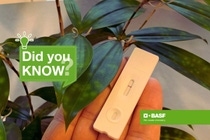Agriculture
Did you know rapid tests are also used to detect plant viruses?

Testing methods for Covid-19 are also used to detect crops’ diseases, identify asymptomatic cases, and monitor incidence of new variants [1]. Early detection is critical to prevent outbreaks and avoid significant economic damages to local communities [2]. Recent examples include the tomato brown fruit virus or the Potato virus Y. The latter can reduce potato yields by up to 80%.
Today, greenhouse and in-field diagnostics of plant diseases rely on image recognition as well as advanced molecular and serological techniques such as PCR detection, Next-Generation Sequencing, and rapid antigen tests. Progress in plant sciences and deeper knowledge of pathogens’ genomes will further improve diagnosis and allow simultaneous detection of several pathogens.
|